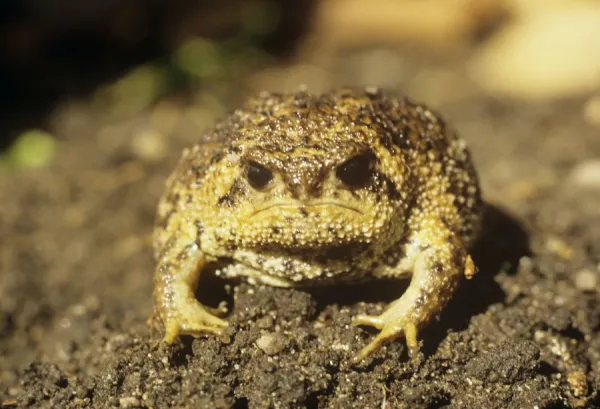Common Health Issues in Reptiles: Symptoms and Solutions
In the elaborate world of reptile treatment, understanding the usual wellness concerns that might influence these distinct animals is extremely important in ensuring their well-being. From breathing infections that can quietly take hold to metabolic bone illness that can disable, reptiles are prone to a series of conditions that require keen observation and prompt intervention. Whether it's coming to grips with parasitical invasions, navigating dehydration worries, or addressing skin conditions that materialize in refined ways, being in harmony with the signs and furnished with the understanding of reliable solutions is vital for any reptile owner. By diving additionally into the subtleties of these health concerns and discovering the functional solutions readily available, one can safeguard the wellness and vitality of these interesting animals.
Respiratory System Infections
Respiratory infections in reptiles can substantially impact their general wellness and need timely interest from seasoned vets. These infections are frequently triggered by microorganisms, infections, or fungi and can materialize via signs and symptoms such as hissing, nasal discharge, open-mouth breathing, and sleepiness. In reptiles, breathing infections can be especially testing to diagnose and deal with because of their distinct makeup and physiology. Veterinarians commonly depend on a combination of physical exams, analysis imaging, and laboratory tests to properly identify the underlying cause of the infection.
Therapy for respiratory system infections in reptiles usually involves a combination of helpful care, such as keeping proper moisture degrees and temperature level gradients in the enclosure, as well as targeted medication to address the certain microorganism in charge of the infection. It is vital for reptile proprietors to check their pet dogs closely for any indications of respiratory system distress and seek veterinary care at the earliest indicator of an issue. With prompt treatment and suitable therapy, lots of reptiles can recover totally from respiratory infections and resume regular activities.

Metabolic Bone Illness
What elements add to the growth of Metabolic Bone Disease in reptiles?
Metabolic Bone Illness (MBD) in reptiles is mostly triggered by a lack of appropriate calcium, phosphorus, and vitamin D3 degrees in their diet plan. In addition, poor direct exposure to UVB light prevents reptiles from synthesizing vitamin D3, which is critical for calcium absorption and bone health and wellness.
Various other adding aspects to MBD include incorrect temperature level slopes within the reptile's environment, causing reduced metabolic rate and impaired calcium absorption. Insufficient moisture degrees can likewise affect a reptile's ability to metabolize calcium efficiently. Moreover, certain reptile types have specific nutritional requirements that, if not met, can raise the chance of creating MBD. Regular veterinary examinations, proper husbandry methods, and a balanced diet plan are important to stop Metabolic Bone Disease in reptiles.
Parasitical Problems
Parasitical infestations posture a substantial health threat to reptiles, influencing their overall health and requiring timely veterinary attention. Reptiles can be impacted by various bloodsuckers, consisting of termites, ticks, inner worms, and protozoa. These parasites can trigger a series of signs, such as weight-loss, sleepiness, skin irritation, diarrhea, and even fatality if left unattended.
One typical bloodsucker located in reptiles is the mite, which can cause skin anxiety, anemia, and irritability. Ticks are an additional outside bloodsucker that can cause and transmit illness discomfort to the reptile. Interior bloodsuckers like worms and protozoa can cause gastrointestinal problems, lack of nutrition, and weaken the reptile's immune system.
To identify a parasitic invasion, a veterinarian might execute fecal tests, skin scrapings, or blood examinations. Therapy usually includes deworming medications, antiparasitic bathrooms, or in extreme instances, a hospital stay. Preventative procedures such as regular vet exams, proper health, and quarantine treatments for new reptiles can aid decrease the risk of parasitical invasions and guarantee the health of reptile pet dogs.
Dehydration and Hydration Issues
Dehydration in reptiles can significantly more info here affect their wellness and health, demanding timely intervention and ideal hydration monitoring. Reptiles are prone to dehydration because of different aspects such as poor water intake, high environmental temperature levels, and particular health conditions. Symptoms of dehydration in reptiles include sunken eyes, lethargy, loss of skin flexibility, and reduced peeing. If left neglected, dehydration can result in serious health concerns and also be deadly to the reptile.
To stop dehydration, reptile owners ought to ensure that their pet dogs have access to clean water whatsoever times. The water meal ought to be large sufficient for the reptile to soak in if required, particularly for species that absorb water via their skin. In addition, keeping appropriate humidity levels in the reptile's unit and providing routine bathrooms can aid prevent dehydration.
In cases of dehydration, it is essential to look for vet treatment promptly. A vet may administer liquids either orally or via shots to rehydrate the reptile. It is vital to resolve the underlying cause of dehydration to avoid recurrence and make sure the reptile's total health.
Skin Conditions

Verdict

Respiratory infections in reptiles can significantly affect their general wellness and require prompt attention from seasoned vets (rain frog for sale). Preventative procedures such as normal vet check-ups, appropriate hygiene, and quarantine treatments for brand-new reptiles can aid decrease the threat of parasitic infestations and make certain the wellness of reptile animals
If left without treatment, dehydration can lead to major health and wellness problems and also be fatal to the reptile.
Frequently checking your reptile for any kind of changes in skin shade, look, or appearance can assist in very early detection and therapy of skin disorders, advertising the general wellness and health of your flaky companion. - rain frog for sale
In conclusion, reptiles are vulnerable to various health issues such as respiratory infections, metabolic bone disease, parasitical infestations, dehydration, and skin discover here conditions.